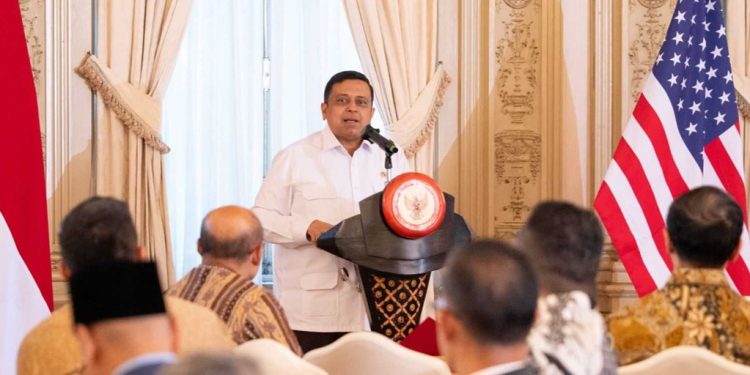Jakarta, Indonesia Sentinel — Ahmad Haikal Hasan, Head of Indonesia’s Halal Product Assurance Agency (BPJPH), has underscored the importance of international collaboration in building an inclusive and integrated global halal ecosystem.
Speaking at the International Islamic Economics & Finance Conference for Sustainable Development (IFESDC) 2025, held at the World Bank headquarters in Washington, D.C., Haikal emphasized that harmonizing global halal standards is key not only to fostering the growth of the international halal industry but also to protecting halal-conscious consumers worldwide.
The conference, held from May 21–22, brought together Islamic economists, scholars, policymakers, and global practitioners to explore the role of Islamic economics, the halal industry, and Islamic finance in promoting sustainable development and poverty alleviation.
Key topics included innovation in halal business practices, halal supply chain management, and regulatory frameworks.
At the forum, Haikal delivered a keynote address titled “Harmonizing Global Halal Standards,” emphasizing the urgent need to accelerate the global alignment of halal certification practices.
He argued that cross-border collaboration is essential to build an inclusive halal ecosystem where mutual recognition of standards is the norm.
“Halal has evolved into a global lifestyle that reflects trust, transparency, and traceability,” Haikal said, as reported by Antara. He added that halal certification is now synonymous with health, hygiene, quality, environmental friendliness, and sustainable practices.
“These standards are being applied across industrial ecosystems by people from all backgrounds, regardless of ethnicity, nationality, or even religion,” he noted.
Read Also:
Indonesia’s Halal Product Exports Decline in 2024 Amid Global Economic Challenges
He also reaffirmed his commitment to maximizing Indonesia’s vast potential in the global halal market. Despite its vast potential, Indonesia currently accounts for only about 3% of global halal trade.
To boost its competitiveness in international markets, BPJPH is working to streamline the halal certification process, making it faster, more affordable, and more reliable.
Haikal also highlighted Indonesia’s initiative to establish the ASEAN-Australia-New Zealand Halal Forum as a concrete step toward enhancing cross-border halal cooperation.
During the event, he also attended a cultural event hosted by the Indonesian Embassy in Washington, D.C., as part of the IFESDC 2025 series.
The forum also served as a strategic platform to expand international partnerships, including efforts toward mutual recognition of halal certification with global institutions.
BPJPH’s participation reflects Indonesia’s commitment to global halal diplomacy and its broader goal of becoming a leading halal-producing nation.
(Raidi/Agung)
























